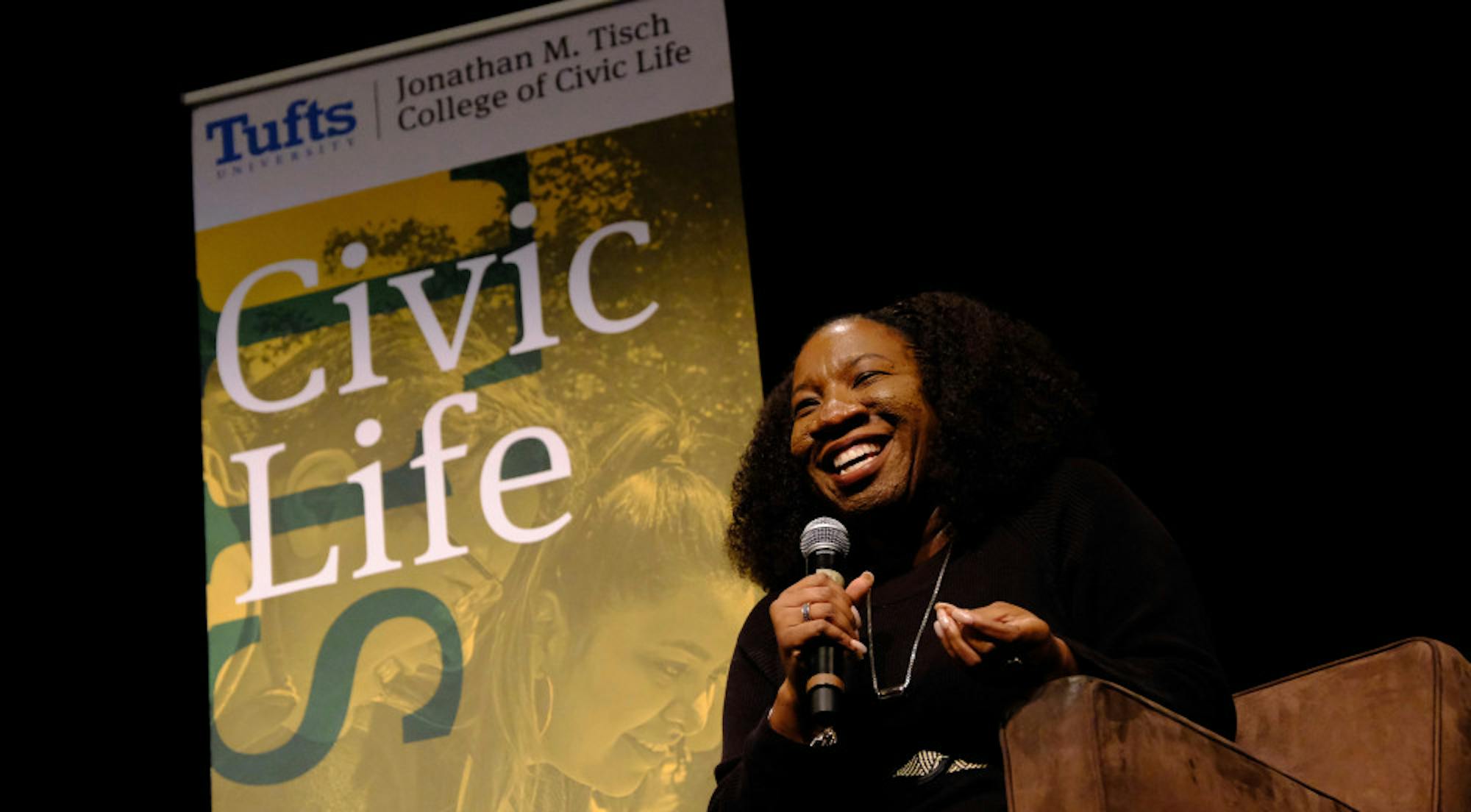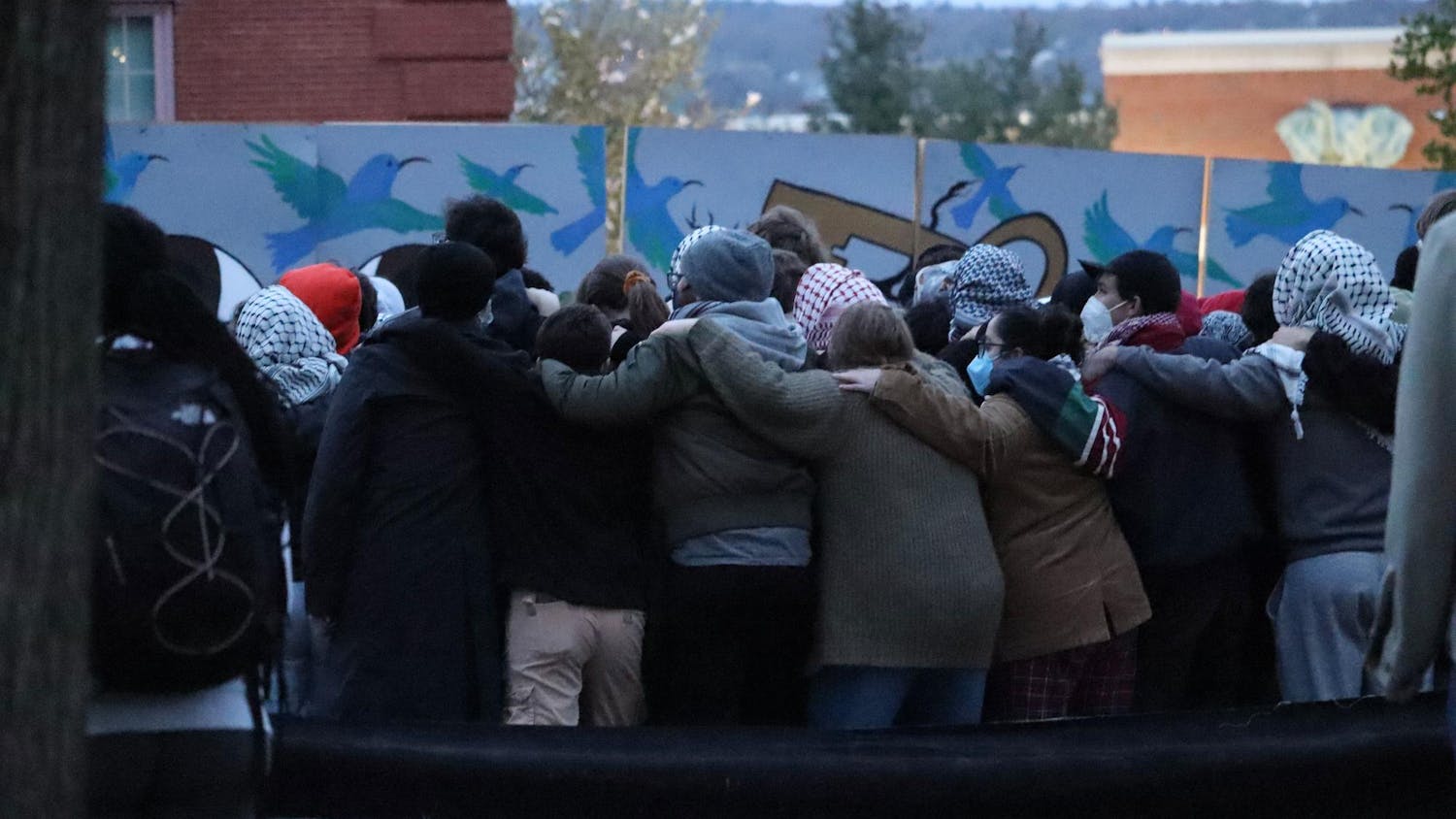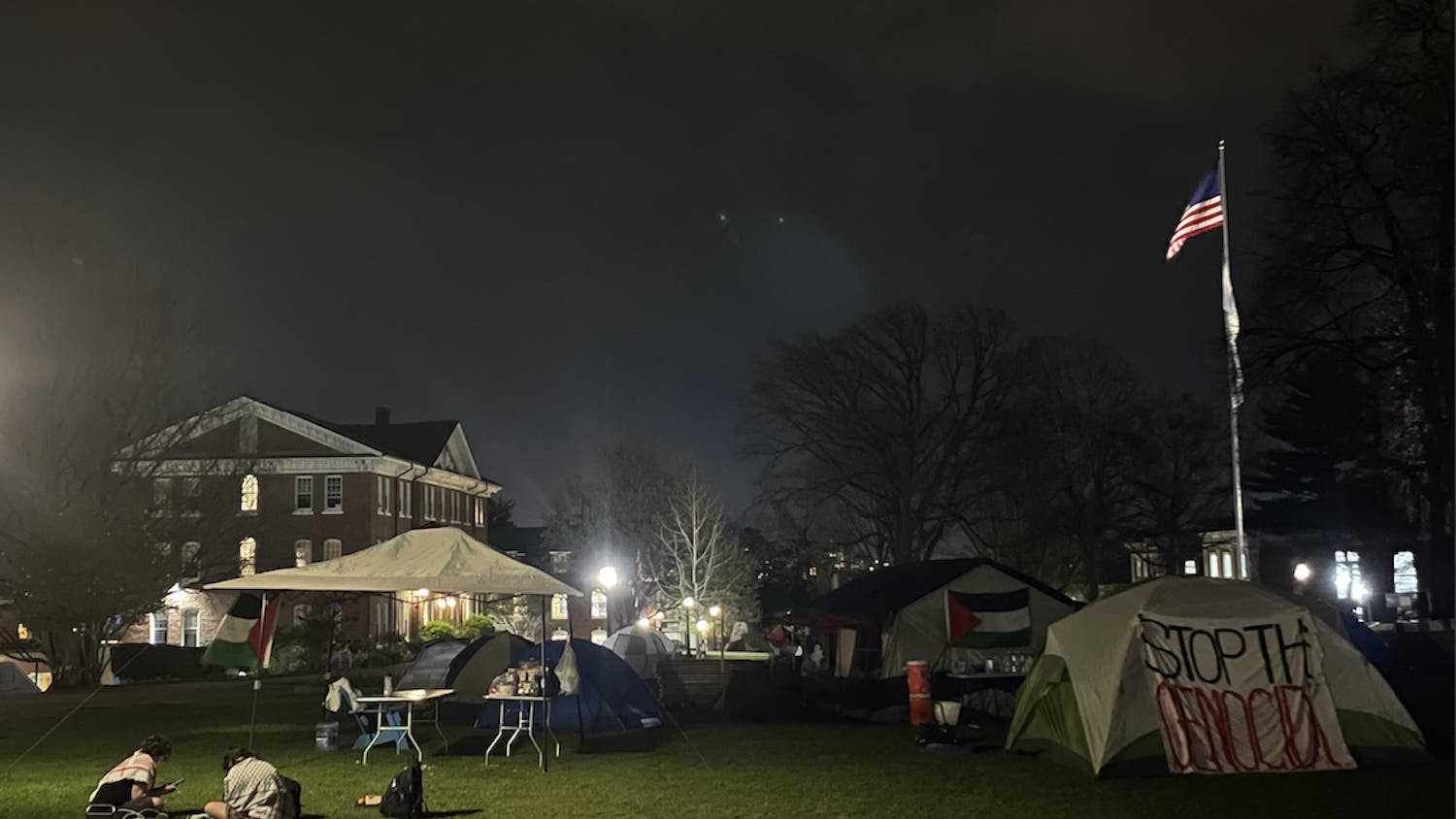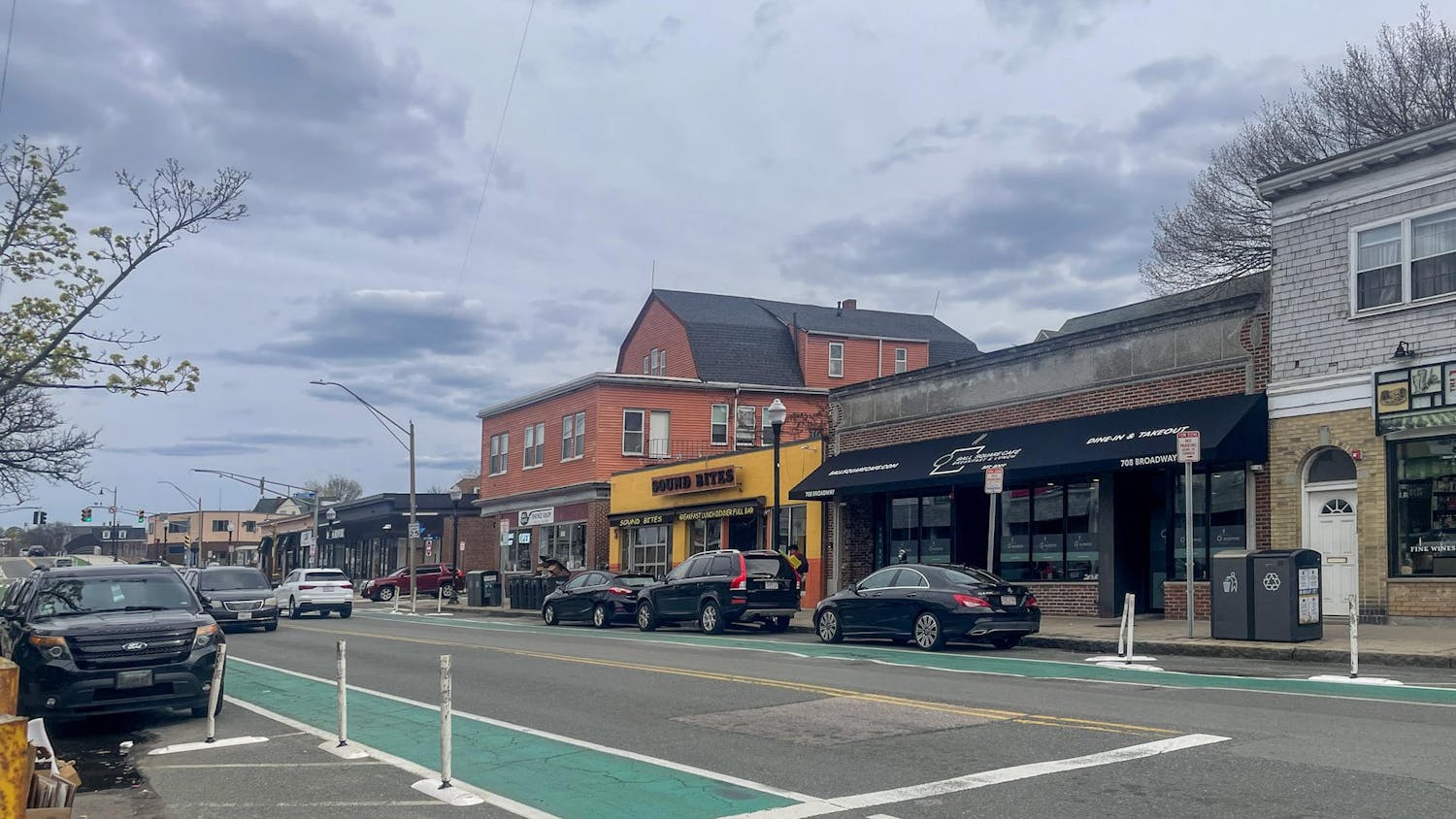Activist and founder of the #MeToo movementTarana Burke spoke to a packed Cohen Auditorium Thursday night as part of the Jonathan M. Tisch College of Civic Life Distinguished Speaker Series. In a discussion moderated by Nandi Bynoe, associate dean of diversity and inclusion, Burke spoke about her history of organizing work, the challenges of her work, the explosion of the #MeToo movement in 2017 and navigating boundaries in self-care in her work.
Burke began her involvement in addressing sexual violence from a young age and recalled a story of standing with a seventh grade girl after school who was waiting for her boyfriend, only to find out that the girl was waiting for a grown adult.
“Nobody addressed sexual violence even though it was around us in all kinds of ways. I had several experiences where sexual violence came up as an issue, and I was at a loss for what to do about it,” Burke said. “The movement literally started with ways to … activate the community about ways to address sexual violence.”
Burke spoke to the challenges of doing organizing work around sexual violence, contrasting it with organizing work around gun violence. She explained that in situations involving gun violence, parents of affected children often organize immediately.
“If a child is shot in a community, what often happens is that the parents become almost first responders and organize other people in the community to be first responders to stop gun violence. People feel connected to the idea of their safety from gun violence,” Burke said. “That doesn’t happen when a person experiences sexual violence. People don’t stop and rally. There are no first responders.”
Burke called for sexual violence to be addressed as an issue of equal magnitude to gun violence.
“Because people don’t understand what sexual violence really does to a person, they don’t understand that it’s another kind of death,” she said.
In 2017, the movement increased drastically in visibility when the hashtag #MeToo blew up on Twitter, implicating several high-profile figures, including famed movie director Harvey Weinstein.
“I’m grateful for the visibility because it gives me a platform,” Burke said.
At the same time, Burke stressed her gratitude that the movement expanded at the time in her life that it did.
“I’m grateful for age and time because it brought me a sense of settlement,” Burke explained. “Yes, I’ll go to the Golden Globes, but also I could watch it on TV and be fine. I’m grateful that it happened at this time in my life where I have a little grounding that helps me navigate this whole thing better.”
The founder of the #MeToo movement spoke about the pervasiveness of sexual violence and how people have felt discouraged about the possibility of finding a solution.
“Sometimes when I talk about ending sexual violence, people say, ‘Why would you say that? It will never happen,’” Burke said. “I have to believe that ending sexual violence is possible to do this work.”
Burke advised people interested in helping to look for gaps in resources and in the system.
“If you really believe you can do something to contribute to the end of sexual violence, you just need to do that consistently,” Burke told the audience. “A lot of what has to happen is around shifting our behavior … There’s so many gaps. If you’re intentional about looking for them, you can find them right away.”
The topic of self-care surfaced in the discussion, and Burke acknowledged that finding time to take care of one’s self can be difficult in organizing work.
“I haven't figured out a way to not burn out yet, but when you do burn out, you have to stop,” Burke said. “You don’t owe this work your life. If you want the movement to be healthy and strong and sustainable, you have to be healthy and strong and sustain yourself.”
Following Burke’s discussion with Bynoe, audience members asked questions. In response to a question about the best way to support a friend who has experienced sexual violence, Burke encouraged students to be good listeners and respect survivors’ needs.
“The best thing you can do for somebody who’s experienced sexual violence is to believe them and establish yourself as a place of safety and trust for them,” Burke said. “Sometimes survivors just need a place to feel normal. Maybe you’re the person they come to to not talk about it.”
Burke also acknowledged the challenge of expanding people’s understanding of sexual violence beyond rape.
“Part of what I think are challenges in the MeToo movement is to help people expand their understandings of sexual violence and understand that it happens on a spectrum,” Burke said. “We won’t make significant change unless we get people to understand. We need people to have this information as they go through life because how they go through life may affect us as survivors.”
She also spoke to relationships survivors may have with perpetrators — or, as she phrased it, “those who have caused harm.”
“I talk about a harm reduction framework as a replacement for that. A lot of the sexual violence that happens doesn’t rise to the level of crime, but it does harm people,” Burke said.
Burke told the audience that her stance toward perpetrators has changed as she deepened her work on this issue.
“Doing this work has taught me so much about myself and human beings and how we have multitudes … Even this idea of perpetrator can get a little tricky. I prefer to talk about folks who have caused harm,” Burke said. “We need to try to not paint people with one brush. I don’t know that I’ve landed on a firm position, but it’s ever evolving.”
Founder of #MeToo movement Tarana Burke speaks at Tufts

Tarana Burke, the executive director of the #MeToo organization, stresses her gratitude toward the expansion of the #MeToo movement in the Cohen Auditorium on Nov. 7.





